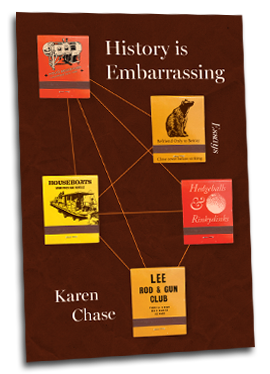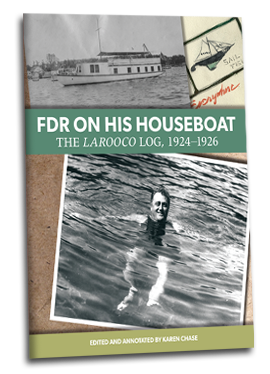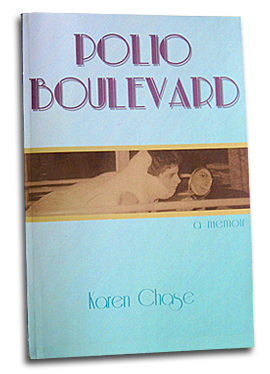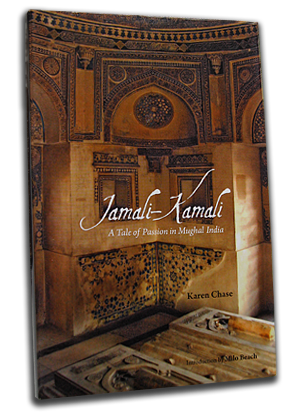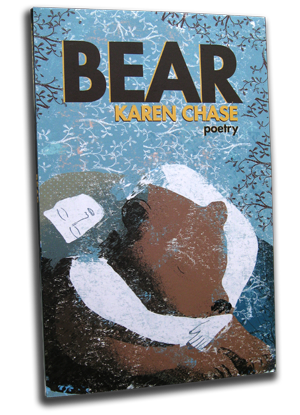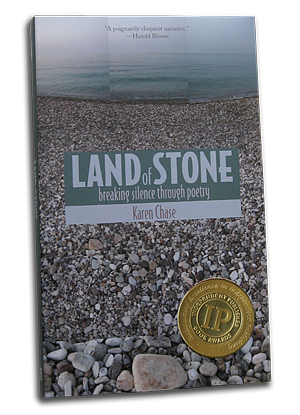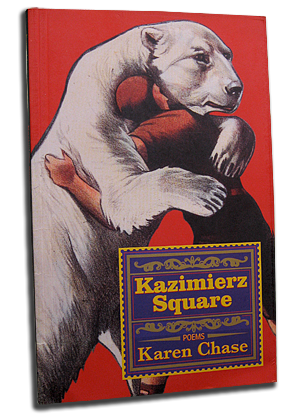History is Embarrassing
“One of the pleasures of being a writer is that you can explore anything,” Karen Chase writes in History is Embarrassing, and that’s exactly what she does in this vibrant and wide-ranging collection of essays. Her subjects include her experience as a childhood polio victim and her resulting fascination with Franklin Roosevelt; her imaginative journey into the lives, hearts, and voices of two homosexual lovers in 16th century India; a rollicking road trip across the country with her grown son; her baptism and immersion into the world of guns; and her hair-raising investigation into a bear-poaching ring. What binds them all together is her distinct voice, the startling directness, immediacy, and intensity of her writing, and her fearlessness to go wherever her interests and imagination take her. History may be embarrassing, as her title attests, but Chase is not afraid of being embarrassed, or, for that matter, of spending time alone with a slightly menacing man and his arsenal of weapons, if it might lead to the discovery of something she doesn’t know. Yet there are no easy conclusions or phony epiphanies here, no designs on the reader, but instead many surprises, and an openness that “clears the air for unexpected forces to breathe.” Chase prizes authenticity and has it in spades. Believe me, you’ve never read essays quite like these. They will make you feel “like a hunter walking deep into the forest of knowledge to find god knows what.” Enjoy!
—Jeffrey Harrison, author of Between Lakes
Pre-Order
https://press.uchicago.edu/ucp/books/book/distributed/H/bo214795031.html

